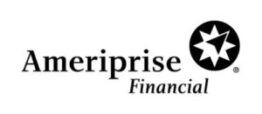
The FBI is investigating two former Edward Jones brokers for their alleged role in raising money from clients who invested in a Ponzi scheme.
A client brought the matter to Edward Jones’ attention in March of this year, the brokerage firm said. As it followed up, Edward Jones learned that the FBI was in the process of a criminal investigation of Gibraltar Partners Inc., a company formed by the two South Dakota based brokers, who were then fired by Edward Jones, according to a report in Investment News.
An Edward Jones spokesman told Investment News that a small number of Edward Jones clients invested money in the Ponzi scheme, away from Edward Jones. The firm is negotiating settlements with the clients, the spokesman said.
The spokesman declined to reveal to Investment News the names of the former Edward Jones brokers allegedly involved. He also stated that the firm is cooperating with state and federal authorities.
The Activity Known as Selling Away
This kind of activity is known as “selling away,” and is a common oversight problem. Typically registered representatives of brokerage firms operate in single or two-man offices without being monitored by management on a daily basis. Often the cases involve a broker selling a financial product without informing the firm or seeking its approval. Sometime a client’s portfolio can be significantly harmed by these activities.
Broker-dealers like Edward Jones can be held responsible for failure to supervise the extracurricular activities of their registered representatives, as well as the offices from which their registered representatives operate when it comes to the recommendation and sale of Ponzi schemes and other fraudulent or unscrupulous activities.
For example, in the 2010 case Lustgraaf v. Behrens, the 8th U.S. Circuit Court of Appeals held a broker-dealer liable when its registered representative conducted a Ponzi scheme, even though the fraud was conducted through a third-party brokerage firm.
Earlier cases include the 2001 case Jairett v. First Montauk Securities Corp. in the U.S. District Court for the Eastern District of Pennsylvania, which held a broker-dealer liable as the control person for its registered representative’s sales of mortgage interests through a wholly separate entity.
The Securities and Exchange Commission, or SEC, has also held broker-dealers accountable. In the 2002 action In re Kolar, Exchange Act Rel. No. 46127, the SEC suspending a Dean Witter supervisor who failed to detect and prevent a broker’s sales of investments promoted as collateral-backed promissory notes. Also in 2002, the SEC action In re Kunz, Exchange Act Rel. No. 45290, disciplined a broker-dealer that failed to prevent its broker’s sales of “wholesale mortgage loan participation interests.”
Regarding Gibralter Partners, a group of investors has sued the entity in U.S. District Court for the Southern District of New York, alleging that Gibraltar was running an alleged Ponzi scheme with others, including the Rahfco Funds LP. The suit is seeking $100 million in damages. Edward Jones was not named as a defendant.
As one of the country’s largest brokerage firms, Edward Jones has a heavy responsibility to supervise its brokers. It has more than 12,000 brokers, most of them operating from one- or two-man offices.
An SEC filing submitted last month by Edward Jones indicates that that the Financial Industry Regulatory Authority, or FINRA, and the state of South Dakota were investigating the former brokers as well.
Guiliano Law Group
The practice of Nicholas J. Guiliano, Esq., and The Guiliano Law Group, P.C., is limited to the representation of investors in claims for fraud in connection with the sale of securities, the sale or recommendation of excessively risky or unsuitable securities, breach of fiduciary duty, and the failure to supervise. We accept representation on a contingent fee basis, meaning there is no cost to unless we make a recovery for you, and there is never any charge for a consultation or an evaluation of your claim. For more information contact us at (877) SEC-ATTY.








